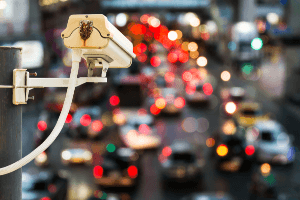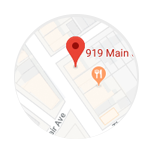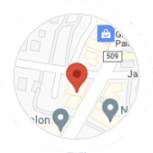Can Video Evidence Help My Personal Injury Claim?
Posted on behalf of James Lynch on January 19, 2023 in Personal Injury News. Updated on May 25, 2023
 To recover compensation from a liable party after an injury, you need strong evidence to prove your claim. One of the most important pieces of evidence in a case can be video footage of what happened before and during an accident.
To recover compensation from a liable party after an injury, you need strong evidence to prove your claim. One of the most important pieces of evidence in a case can be video footage of what happened before and during an accident.
Whether you were injured in a car crash, a slip-and-fall incident or some other type of accident, our New Jersey personal injury lawyers are prepared to help. The initial consultation is free and confidential.
With help from our attorneys, you may be able to recover some important video footage to help prove your claim. Below, we discuss how video evidence may be obtained and used in your case.
How Can I Recover Video Footage of an Accident?
How you recover video footage depends on how the footage was captured.
Generally, if the camera does not belong to you, your attorney may need to file a formal request to recover the footage. If the camera belongs to the liable party, a subpoena may be necessary. To subpoena information from the at-fault party, a lawsuit is required.
It is important to determine what kind of footage may be available and who has access to it. Some common video recordings may come from the following:
Surveillance Cameras
Both public and private property may have surveillance or security cameras. Surveillance cameras are common in heavily populated areas such as:
- Grocery stores
- Retail stores
- Gas stations
- Convenient stores
- Government facilities
- Strip malls
However, some private homes also have surveillance cameras, such as a Ring doorbell camera. These cameras can record all sorts of activity around a property depending on where the camera is placed.
If you are hurt in a slip-and-fall accident on either public or private property, our attorneys may have to subpoena the video footage. Unless the surveillance camera belongs to a party not involved in the case. For example, if you trip and fall on a wet sidewalk in front of someone’s home, but the camera belongs to the neighbor across the street from where you fell.
Traffic Cameras
Red light cameras in New Jersey are illegal. The cameras that were previously used to monitor speed and red-light runners are now inactive. However, the Department of Transportation in the state still uses cameras on state highways.
If you are injured in a car crash on one of these state highways where there is a camera, our attorneys may be able to reach out to the Department of Transportation for access to the footage. Since the state is most likely not the liable party in this situation, a subpoena might not be necessary. However, the process for recovering the footage could be complicated, so it may be in your best interest to work with an attorney.
Dashboard Cameras
A dashboard camera will most likely only help establish fault in a car crash, as these cameras typically only record when a vehicle’s engine is running.
To recover the video footage from a dashcam that does not belong to you, a subpoena may be necessary.
Cellphone Recordings
Almost everyone has a phone with video recording capabilities nowadays. If a bystander recorded the accident and you got their contact details, our attorneys may be able to request access to the video footage. This is one of the reasons it is important to talk to people who may have witnessed an accident.
Depending on the person who owns the video, our attorneys may or may not have to file a subpoena to recover the video footage.
Video Footage May Help Establish What Really Happened
Every case is different, so it is impossible to cover every potential scenario where video footage may help prove a claim.
However, one useful way video footage may help your claim is to shed light on a “he-said-she-said” argument when there is a lack of witness testimony. For example, if you slipped and fell on a wet floor in a grocery store, the owner of the store may try to argue there was a wet floor sign clearly visible in the area where you fell. If there were no witnesses in the area when you fell, surveillance footage from inside the store could help show whether there was a sign alerting the public about a wet floor.
Another way video footage may help establish fault is when there is a lack of physical evidence. For example, dashcam footage on your vehicle could help prove a driver did not check to make sure a lane was clear before switching into it, resulting in a crash.
How Will the Liable Party Try and Dispute Video Evidence?
The liable party may try and withhold video footage for as long as possible. This means the party may refuse to share it with you and your attorney, forcing legal action. In some cases, this could be an issue, as New Jersey drivers may have a limited right to sue depending on their insurance policy. However, this law does not cover injured victims who are hurt in a non-motor vehicle accident.
If the liable party has no choice but to hand over the video footage, there may be an attempt to discredit the video. For example, the insurance company may try to argue the footage is edited or the angle does not show what truly happened.
Ultimately, if your claim goes to trial, it is up to a jury to decide whether the video footage is enough to support your argument for compensation.
While video footage can serve as strong evidence, it may be a good idea to use other supporting material, including witness testimony and other physical evidence.
Call Us For Help Today
If you were injured in an accident due to another party’s negligence, our experienced attorneys are ready to help you.
Our lawyers can request the necessary evidence from the appropriate parties, including by subpoena.
Call (800) 518-0508 to schedule a free consultation.







